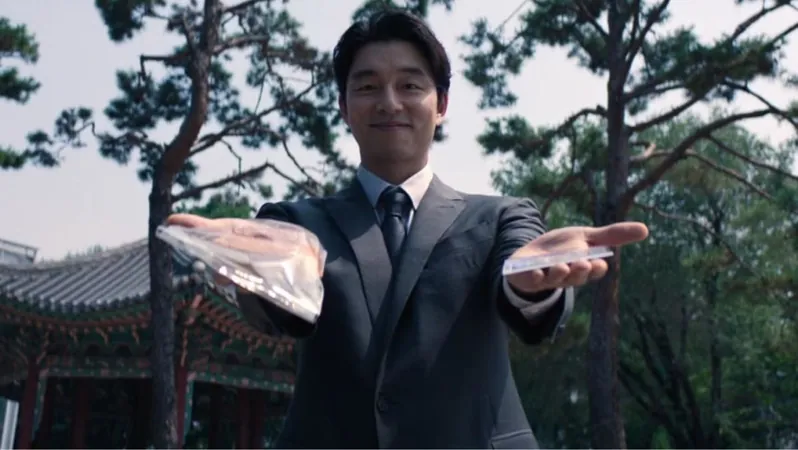
Are We Missing the Real Message of Squid Game? The Dangerous Trend of 'Bread or Lottery'
2025-01-13
Author: Mei
Introduction
In our fast-paced world, many of us turn to television shows and movies not just for entertainment, but as a means of escape from the daily grind. However, while it's perfectly normal to enjoy a gripping story filled with action and drama, it's equally critical to recognize the deeper themes that often lie beneath the surface. This is especially true for cult sensations like the South Korean series *Squid Game*, a show that does more than entertain; it provokes thought about our contemporary society.
A Critique of Capitalism
*Squid Game*, created by Hwang Dong-hyuk, is fundamentally a stark critique of capitalism. The show places its characters in dire situations, forcing them to compete for survival in games that reflect the cutthroat nature of modern society. As Hwang himself has explained, "I wanted to write a story that was an allegory or fable about modern capitalist society. It depicts an extreme competition like life itself, using relatable characters."
The Irony of Profitability
As we revel in the success of *Squid Game*, with its burgeoning merchandise and multiple spin-offs, we must grapple with the irony that a series focused on human greed has turned into a profitable franchise. Yet, this irony becomes troubling when it manifests in real-world behaviors that fail to grasp the show’s critiques.
The 'Bread or Lottery' Challenge
One alarming trend emerging online is the ‘Bread or Lottery’ challenge inspired by a significant moment from *Squid Game*. In this controversial scene from Season 2, a character, portrayed by the talented Gong Yoo, confronts a group of homeless individuals, presenting them with a choice between fresh bread and a lottery scratch card. The majority opt for the allure of the lottery ticket, leading to a disturbing act where Gong Yoo's character disdainfully discards the untouched bread, crushing it underfoot while stating, “I gave you a chance and you made your choice."
Trivializing Real Struggles
This scenario serves as a vivid illustration of the illusion of free choice within an unjust system, highlighting how those in power can manipulate the vulnerable. This kind of online trend trivializes the complex realities faced by marginalized individuals, reducing their struggles to mere sensational content in a bid for clicks and likes.
Concerns from the Creator
Notably, Hwang has expressed concerns regarding the connection between *Squid Game* and societal values. "Fundamentally, human selfishness and greed drive our systems. I’ve grown increasingly pessimistic about human nature," he remarked. This underscores the show's intention to provoke discourse about morality in a consumerist culture.
Engagement with Mindfulness
While it’s entertaining to engage with *Squid Game* through various platforms, including social media and gaming adaptations, we must tread carefully. It’s imperative to retain a mindful approach to the show’s content, distinguishing between entertainment and a harmful reflection of reality. The real lesson here is not just to indulge in the thrilling spectacle of the series but to foster kindness and compassion in our interactions with others.
Conclusion
So, as we process the thrill of *Squid Game* and the discussions it incites, let's steer clear of adopting harmful trends in reality. Instead, let’s reflect deeper on our choices and their implications—because, unlike the characters in the series, we have the opportunity to effect genuine change and support those in need.

 Brasil (PT)
Brasil (PT)
 Canada (EN)
Canada (EN)
 Chile (ES)
Chile (ES)
 Česko (CS)
Česko (CS)
 대한민국 (KO)
대한민국 (KO)
 España (ES)
España (ES)
 France (FR)
France (FR)
 Hong Kong (EN)
Hong Kong (EN)
 Italia (IT)
Italia (IT)
 日本 (JA)
日本 (JA)
 Magyarország (HU)
Magyarország (HU)
 Norge (NO)
Norge (NO)
 Polska (PL)
Polska (PL)
 Schweiz (DE)
Schweiz (DE)
 Singapore (EN)
Singapore (EN)
 Sverige (SV)
Sverige (SV)
 Suomi (FI)
Suomi (FI)
 Türkiye (TR)
Türkiye (TR)
 الإمارات العربية المتحدة (AR)
الإمارات العربية المتحدة (AR)